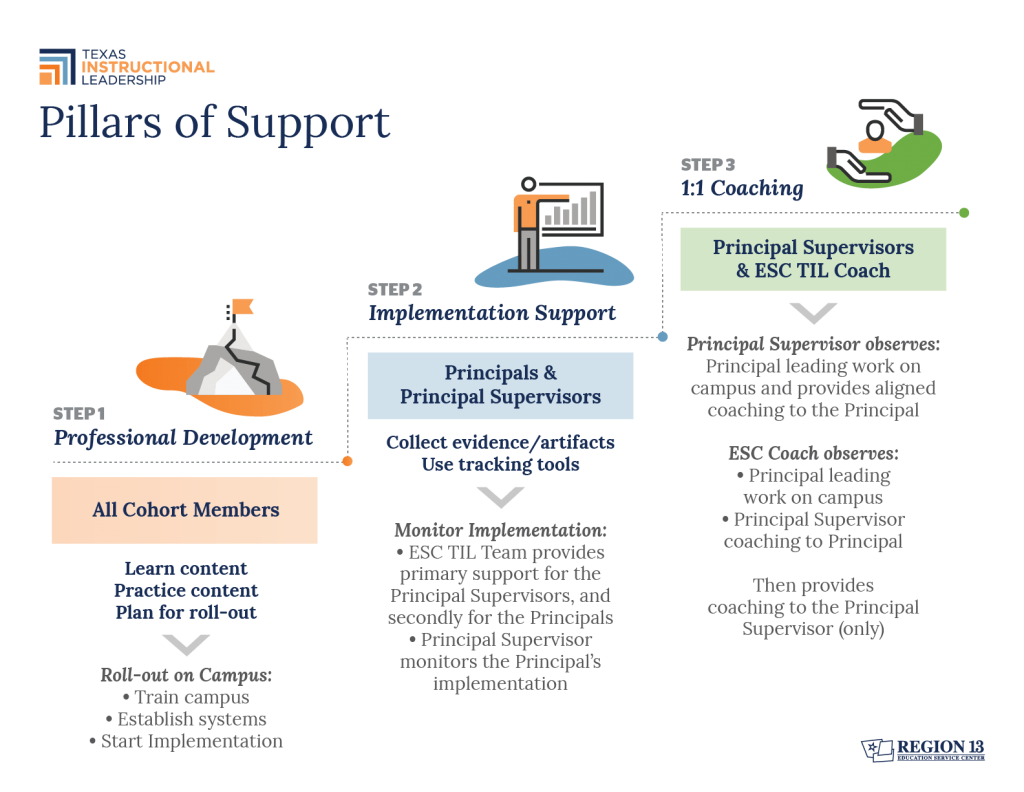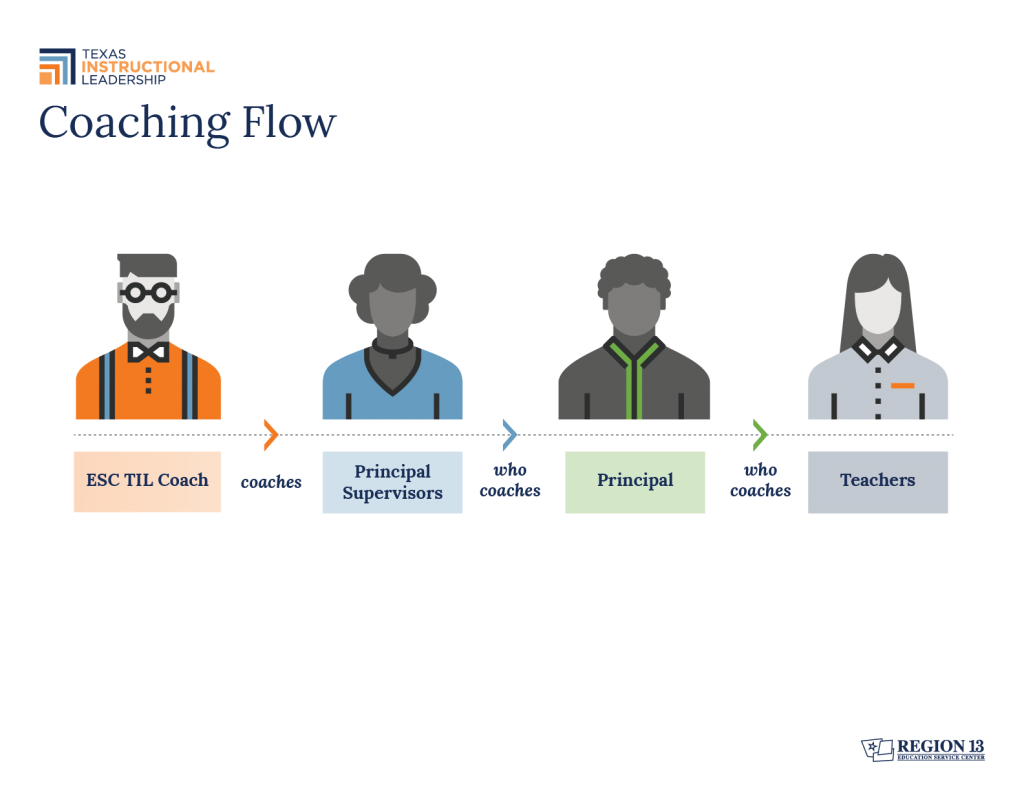A principal’s responsibilities are constantly evolving, but one thing that remains the same is their role as an instructional leader. By setting goals, aligning curriculum, analyzing student data, and collaborating with teachers, principals are able to set their campus on a path to success. But thinking through how to do this can feel daunting.
That’s why Texas Instructional Leadership (TIL) was created. It’s a professional development that is aligned to best practices outlined in the Effective Schools Framework (ESF) by the Texas Education Agency (TEA). Unlike other professional development, it’s not something you can just sign up for. It’s a process that can radically transform your campus through building the capacity of district and campus leaders around evidence-based practices. Let’s take a look at the foundation of support that TIL provides.
Pillars of Support
Texas Instructional Leadership consists of three pillars of support: face-to-face professional development, implementation support, and coaching. To begin, districts have the ability to create cohorts that consist of district and campus instructional leaders. Cohort members attend three cycles of practice-based professional development. Then, each cycle is followed by implementation support and coaching from your local Education Service Center (ESC) TIL Team.

All members of a cohort attend professional development. Their next steps are to bring the practices they learned back to their campuses. Campus principals and their supervisors will lead this work, with the support of an ESC coach. In addition to implementation support, the principal supervisor will receive specific training to effectively coach the principals they supervise. Also, each principal supervisor will receive aligned coaching from a dedicated ESC coach.

Components of Texas Instructional Leadership
There are currently four components of TIL. For each component, there are ESF-aligned practices that are proven to be effective. Here’s a brief breakdown of each of the pathways that are offered.
Action Coaching/Observation and Feedback
One component of TIL is Action Coaching/Observation and Feedback. It guides administrators to develop strong systems for regular observation of teachers and timely feedback. These practices shift the way we view teacher observation away from evaluation and towards targeted teacher development.
Data-Driven Instruction
Another component of TIL is Data-Driven Instruction. It builds the capacity of campus instructional leaders to lead effective data meetings that focus on the TEKS and hone in on specific gaps in student learning. Once gaps are identified, teams plan and practice the reteach to ensure that the actions teachers take after the analysis has the greatest impact on student learning.
Lesson Alignment & Formative Assessment
Lesson Alignment & Formative Assessment develops campus leaders to train and support teachers in creating TEKS-aligned lesson plans and formative assessments. This professional development focuses on unpacking standards to develop daily learning objectives and formative assessments that target the most critical components of the standard.
School-Wide Culture Routines
The final component of TIL is School-Wide Culture Routines. This professional development and coaching supports campus leaders to develop a culture of student learning and high expectations. Leaders will learn how to plan, implement, and monitor these routines and procedures that reflect the campus mission, vision, and values.
I’m Interested in TIL. Now What?
To get started with any of the components of TIL on your campus, here are the next steps for you to take.
Make sure the campuses’ principal supervisor and principal are both on board to begin this process. Since the purpose of Texas Instructional Leadership is to build the capacity of campus and district administrators as instructional leaders, this is a crucial first step.
Then, the principal supervisor and the principal will attend an overview training from their local ESC to look at their current systems and prepare for the work ahead. This is called precycle work. From there, campus teams engage in the 3 cycles of face-to-face training, implementation support, and coaching. Here’s an example of a timeline used for Data-Driven Instruction.
All in all, Texas Instructional Leadership is an exciting variety of professional development that can transform campuses by growing concrete instructional leadership skills. To learn more, visit Region 13’s TIL webpage.
Get started with Texas Instructional Leadership today!
Megan Cruz is the Project Coordinator for the Texas Instructional Leadership Team at ESC Region 13.





Add comment